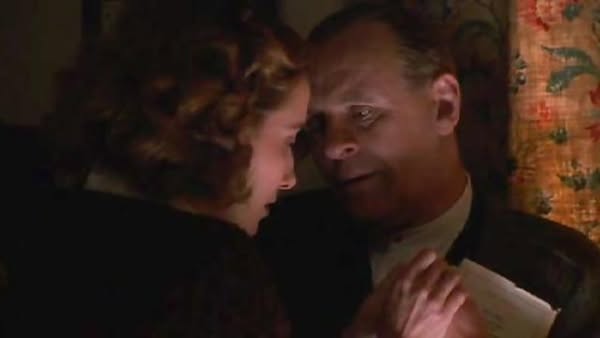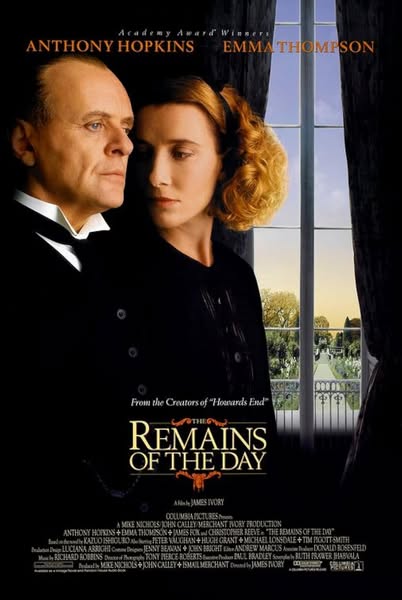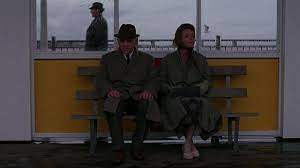The Remains of the Day (1993)

The Remains of the Day is a 1993 drama film directed by James Ivory, based on the novel by Kazuo Ishiguro. This poignant story explores themes of duty, regret, and the complexities of human emotion through the eyes of Stevens, an English butler portrayed masterfully by Anthony Hopkins. The film also stars Emma Thompson as Miss Kenton, Stevens’s former colleague, and potential love interest.
Set in post-World War II England, the narrative unfolds primarily in the 1950s, as Stevens reflects on his life while on a road trip to visit Miss Kenton, who has left Darlington Hall. The story is structured as a series of flashbacks, revealing Stevens’s decades of devoted service to Lord Darlington (James Fox), a man whose questionable political affiliations and decisions weigh heavily on Stevens’s conscience.
The film delves deeply into Stevens’s internal conflicts and the emotional barriers he has constructed throughout his life. As a butler, he has dedicated himself to the ideals of professionalism and loyalty, often at the expense of personal happiness and meaningful relationships. His interactions with Miss Kenton reveal a complex dynamic filled with unspoken feelings and missed opportunities, as both characters grapple with their own desires and societal expectations.

James Ivory’s direction, combined with Ruth Prawer Jhabvala’s screenplay, captures the subtleties of human emotion with remarkable finesse. The film’s pacing allows for a slow unraveling of Stevens’s character, inviting viewers to engage with his inner turmoil and the consequences of a life spent in service. The lush cinematography, depicting the grandeur of Darlington Hall and the English countryside, enhances the film’s melancholic atmosphere.
Anthony Hopkins delivers a hauntingly restrained performance, embodying Stevens’s stoicism while subtly conveying the depths of his unfulfilled longing. Emma Thompson complements his performance beautifully as Miss Kenton, bringing warmth and complexity to her character. Their interactions are laden with tension and regret, illustrating the profound impact of choices made in the name of duty.

The film’s score, composed by Richard Robbins, further underscores its emotional weight, weaving through the narrative with a haunting elegance that amplifies the themes of nostalgia and loss. The music complements the visual storytelling, enhancing moments of introspection and connection between the characters.
The Remains of the Day received critical acclaim upon its release, earning multiple Academy Award nominations, including Best Picture, Best Actor for Hopkins, and Best Actress for Thompson. It is often regarded as a classic of British cinema, praised for its literary adaptation and its exploration of complex emotional landscapes.

In conclusion, The Remains of the Day is a beautifully crafted film that transcends the boundaries of its historical setting to explore universal themes of love, duty, and the passage of time. Through the lens of Stevens’s life, it invites viewers to reflect on the choices they make and the relationships they forgo in pursuit of duty. With its powerful performances, exquisite direction, and poignant storytelling, the film remains a significant work that resonates deeply with audiences, reminding us of the fragility of human connection and the importance of living authentically.











